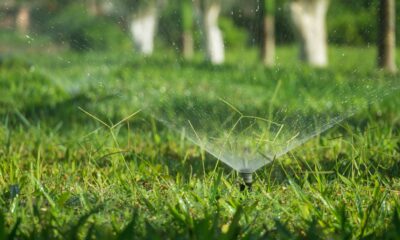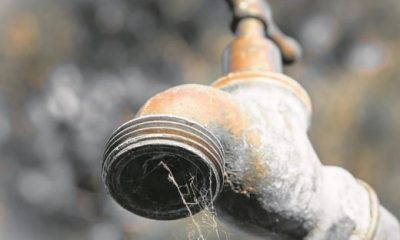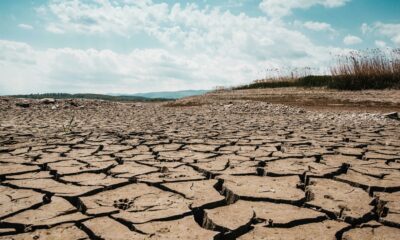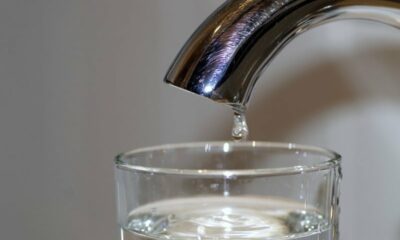News
Johannesburg Water Begins Long Road to Recovery After Major Rand Water Maintenance
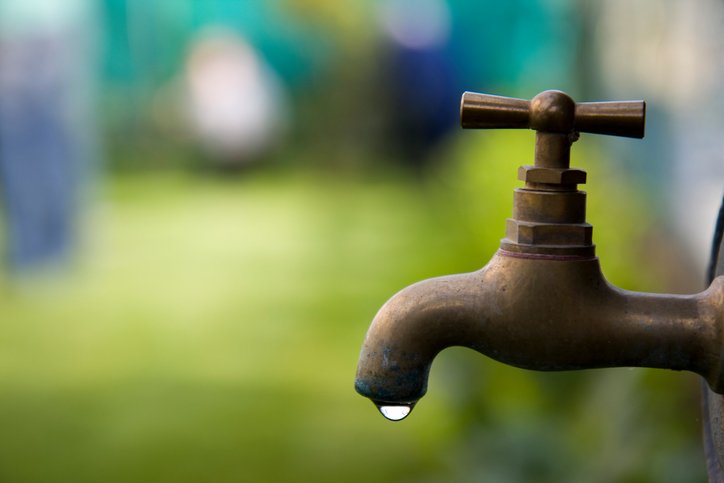
Johannesburg residents are finally seeing signs of relief as the city’s water systems begin to recover after critical maintenance on Rand Water’s infrastructure — but officials warn that a full return to normal could take up to two weeks, especially in the most strained areas.
The long-awaited maintenance, completed on Tuesday, 3 June, targeted the Palmiet System — a major artery in Joburg’s water supply network. Though the initial repairs have been wrapped up, the real challenge has only begun: restoring balance to a network stretched thin long before the shutdown.
? Russel Road Meter Project Update ?
Rand Water has successfully completed the maintenance work of installing a new meter in Russel Road.
Please note: Water supply doesn’t return instantly — the system needs time to build capacity. pic.twitter.com/Ieldz7AKD4— Rand Water (@Rand_Water) June 4, 2025
Reservoirs Running on Empty
According to Johannesburg Water, systems fed by the Palmiet network — including Sandton, Midrand, and Linksfield — are slowly bouncing back. But not everyone is in the clear. The Alexander Park, President Park, and Grand Central reservoirs are still in critical condition, having struggled with low levels even before the scheduled work began.
Nombuso Shabalala, spokesperson for Johannesburg Water, said the utility has been “closely monitoring” the city’s reservoirs and is applying technical interventions such as throttling and selective outlet closures to stabilize pressure and flow. Direct feed systems — which supply water without the help of reservoirs — are reportedly back to adequate levels.
But for thousands of residents who rely on these failing reservoirs, patience is the only option. Recovery timelines for severely impacted systems stretch anywhere from 2–14 days — and that’s only if no new complications arise.
“We’re Tired”: Social Media Tension Boils Over
Frustrated Joburgers took to social media platforms like X (formerly Twitter) and Facebook to vent. Posts with hashtags like #WaterCrisisJoburg and #RandWaterDrama flooded timelines, with many questioning the city’s infrastructure planning and communication.
“I’m buying water to cook and bathe in Midrand while my rates bill keeps climbing. Who’s accountable?” posted one user.
Others took a more resigned tone: “If you live in Joburg, you know this dance. No water, no updates, just more apologies,” read another.
Adding to the Chaos: Unplanned Breakdowns
To make matters worse, not all water outages were part of the plan. Separate from Rand Water’s programme, emergency repairs were launched Monday afternoon to fix an air valve on the G15 bulk line near the Hector Norris Pump Station. These fixes, expected to conclude Tuesday night, affected large swathes of the southern suburbs — including Rosettenville, The Hill, Turffontein, and Glenesk.
Residents in these areas experienced little to no water pressure, highlighting how vulnerable the system is to simultaneous disruptions.
What’s Still to Come? More Maintenance, More Uncertainty
The recent maintenance was only the opening act in a much broader infrastructure operation. Rand Water’s ongoing upgrade and maintenance schedule will run through 21 July 2025, targeting key systems like Eikenhof and Zwartkopjes.
From 30 June, large parts of Soweto, Randburg, Roodepoort, and Lenasia will face disruptions due to critical repair and cleaning work at Rand Water’s Zuikerbosch and Vereeniging plants. These operations will involve partial shutdowns of pumping stations and pressure drops that could last nearly three weeks.
The Zwartkopjes System — servicing areas like Parktown, Berea, and Naturena — will also undergo valve replacements during the same period, causing a complete halt in pumping for three full days.
A City Built on Fragile Infrastructure
Joburg’s water woes have become all too familiar. Decades of under-investment, rapid urban sprawl, and climate variability have left the city’s infrastructure teetering. And while Rand Water’s upgrades are essential, they also lay bare just how brittle the system has become.
Johannesburg Water has promised to keep deploying roaming and stationary water tankers, especially in worst-hit zones, until reservoirs recover. Still, the utility urged residents to use water sparingly and report leaks immediately.
“Every drop saved can help stabilize the system faster,” said Shabalala.
As climate risks rise and infrastructure ages, Johannesburg faces a difficult question: how long can the city rely on patchwork fixes before it invests in real resilience? Water, a basic right and lifeline in any metropolis, is becoming a recurring crisis for Africa’s economic engine.
For now, residents will have to endure a few more dry taps, cautious showers, and buckets under sinks — hoping the promise of recovery doesn’t evaporate as quickly as their water pressure.
Why Taps Are Still Running Dry in Gauteng Even After Rand Water Did Its Job
{Source: The Citizen}
Follow Joburg ETC on Facebook, Twitter , TikTok and Instagram
For more News in Johannesburg, visit joburgetc.com



